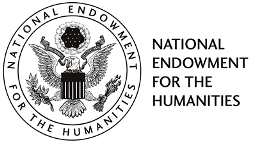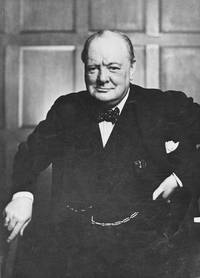
For Educators
Teaching Materials

June 18, 2008
 Lesson Plans are developed as personal responses of teachers who have attended The Churchill Centre’s seminars and National Endowment for the Humanities (NEH) summer institutes and by The Churchill Centre and our scholars. Teachers designed the lessons for their own classrooms, often adding to curricula they already use. Decisions on using these lessons remain the responsibility of individual teachers. Information in the lesson plans is factually correct.
Lesson Plans are developed as personal responses of teachers who have attended The Churchill Centre’s seminars and National Endowment for the Humanities (NEH) summer institutes and by The Churchill Centre and our scholars. Teachers designed the lessons for their own classrooms, often adding to curricula they already use. Decisions on using these lessons remain the responsibility of individual teachers. Information in the lesson plans is factually correct.
Course and Level reflect the audience teachers had in mind when planning their lessons. Material may be adapted for other courses and grades.
Notes: Selections from the Audio Archive are often best accompanied by a handout of the written text.
A list of documents for classroom use is here.
Comments, suggestions or questions? Please email: ssigman (at) winstonchurchill.org
Churchill and Statesmanship
Winston Churchill: A Statesman for All Time
by Hillsdale College in partnership with the Michigan Churchill Society
Course: U.S. or World History
Level: Grades 9-12
Synopsis: These three lesson plans help students grasp the meaning of an outstanding figure whose actions helped shaped our understanding of democracy and statesmanship. The three lessons are entitled: Portrait of a Statesman, Democracy and Tyranny: Winston Churchill the Defender and Global Interdependence. Powerful leaders of the twentieth century included Adolph Hitler and Joseph Stalin as well as people like Churchill and Roosevelt. What differentiates leaders like these? What principles should guide and restrict the actions of a public figure?
Winston Churchill: Characteristics of His Leadership
by Mark Ellwood
Course: U.S. History
Level: Grades 9-12
Synopsis: Using Churchill’s “War Speech” of September 3, 1939, his last speech in the House of Commons before joining Neville Chamberlain’s wartime government as First Lord of the Admiralty (civilian head of the British Navy), this lesson examines two characteristics of his leadership: resolution and magnanimity.

2025 International Churchill Conference
Winston Churchill: Topical and Essential Questions
by Suzanne Sigman
Course: Churchill Studies
Level: Grades 9-12
Synopsis: Because the study of Churchill’s life and times encourages reflection on important pedagogical, historical and political questions, it is important to identify, as examples, several of the “essential questions” one might confront in the reading and contemplation of Churchill. “Essential Questions” is a term applied to curriculum development as conceived by Grant Wiggins and Jay McTighe in their seminal work Understanding by Design.
Winston Churchill and Technology
by Christopher M. Schwarz, NEH summer institute (2006)
Course: AP U.S History and AP European History
Level: Grades 11-12
Synopsis: The purpose of this lesson is to investigate and to discuss Churchill’s views on technological change in his lifetime and to ponder whether he felt technology is beneficial for humankind or a serious threat to our existence. This is a discussion-based lesson using a series of questions about Churchill’s article “Mankind is Confronted by One Supreme Task.”
Compare and Contrast: Churchill v. Garraty
by Jeff Gordon, NEH summer institute (2006)
Course: U.S History
Level: Grades 9-12
Synopsis: The writings of Winston S. Churchill will be compared and contrasted with the textbook The American Nation, written by Dr. John Garraty. The focus will be on the differing interpretations of events relative to the Civil War. Reading, cooperative learning, discussion and writing will all serve as parts of the lesson.
Aldous Huxley and Winston Churchill: Thinking about the 1930s
by Ken Krummenacker, NEH summer institute (2006)
Course: English
Level: Grades 11-12
Synopsis: Students will compare and contrast Churchill’s ideas in one or both of his essays, “Fifty Years Hence,” and “Mass Effects in Modern Life,” with the themes of Aldous Huxley’s classic dystopian novel Brave New World. Students will examine the 1930s fear that modernization, industrialization and technology were challenging the notion of individualism and the threat that totalitarian governments could conceivably manipulate the minds and even the biological nature of their enslaved citizens.
The Path to World War II
The “Wooing” of America: Winston Churchill and the Strengthening of Anglo-American Relations, 1938-1941
by Robert B. Patrick, NEH summer institute (2006)
Course: U.S. History/AP European History
Level: Grades 11 or 12
Synopsis: By studying three speeches of Winston Churchill, students will analyze Churchill’s attempt to persuade the Americans of the threat posed by Hitler and his Nazi regime and the need for the Americans to abandon their isolationist policy.
From Isolationism to Interventionism: America’s Entry into World War II
by Mark Baker, NEH summer institute (2006)
Course: U.S. or World History
Level: Grades 9-12
Synopsis: This lesson plan examines American isolationism and the shift from isolationism to intervention to help the British before Pearl Harbor.
Letters from Americans: Churchill’s Broadcast on the Defence of Freedom and Peace, 16 October 1938
by Beverly Hart, NEH summer institute (2008)
Course: U.S. History
Level: Grades 9-12
Synopsis: Students will consider the diversity of opinions in the U.S. about the rise of Hitler by examining letters written to Churchill reflecting public opinion on his 1938 speech.
Churchill: The Right or Wrong Man for the Job 1933-1940
by Arnie Mansdorf
This PowerPoint presentation with a timeline and document pack explores some of the primary reasons why so few listened to Churchill’s warnings of the Nazi threat during the 1930s, and why he remained outside the government, serving only as a Member of Parliament (MP). A script for the PowerPoint is in the lesson plan. Watch the PowerPoint online here. On the lower right, click on the “arrow box” to bring to full screen. You may also access the presentation here.
World War II
Neville Chamberlain and Winston Churchill: A Contrast in Leadership
by Martha Curtis
Course: U.S. History
Grades: 9-12
Synopsis: Students compare and contrast the rhetorical styles of Britain’s two wartime prime ministers by listening to audio versions of Chamberlain’s “Declaration of War on Germany,” given on September 3, 1939, and Churchill’s first broadcast to the British people after becoming prime minister, “Be Ye Men of Valor,” on May 19, 1940. An annotated version of Churchill’s speech, with a map, is included.
Churchill’s Wartime Speeches: 1940-1941
by Jannette R. Milligan, NEH summer institute (2006)
Course: Any history course covering World War II
Level: Grades 9-12
Synopsis: The lesson will provide students the opportunity to learn about the time period from May 10, 1940 to June 21, 1941, to read several of Winston Churchill’s speeches from this time period, to discuss the context of these speeches, and to analyze their importance in contributing to the formation of a national British consensus to continue to fight the Germans.
Franklin and Winston: And So To War
by John Baran, NEH summer institute (2006)
Course: U. S. History
Level: Grades 10-12
Synopsis: This lesson is intended to compare and contrast the justifications that led to British (1939) and American (1941) involvement in World War II. It can be used as a stand-alone lesson or as a supplement to a lesson outlining the origins of World War II and is designed to fit into an overall unit on the study of World War II. Students will be asked to read two famous speeches and answer questions, discuss the speeches, work collaboratively in groups answering open-ended questions about the justifications for war, and write a response to a prompt. (Associated Worksheets)
Post World War II
Churchill’s “Iron Curtain” Speech
by Jannette Milligan
Course: U.S. History
Level: Grades 9-12
Synopsis: Background on the major events preceding and following Churchill’s speech, on March 5, 1946, in Fulton, Missouri, accompanies an abridged, annotated version, with suggestions for classroom use.
Roots of the Cold War: Stalin, Kennan, Truman and Churchill
by Terese Trebilcock
Course: U.S. History
Level: Grades 10-12
Synopsis: Students analyze and describe how a series of speeches and articles in early 1946 set the stage for the Cold War: Stalin’s “Election” Speech (February 9th), Kennan’s “Long Telegram” (February 22nd), Churchill’s “Sinews of Peace” speech (March 5th), and Stalin’s interview with Pravda (mid-March). An optional examination of Churchill’s speech, “The Darkening International Scene,” in New York City, a mere ten days later on March 15, is included.
Churchill Lessons for English Teachers
AP Argumentative Essay Prompts from Winston Churchill
by Eileen Bach
Course: AP English Language and Composition
Level: Grades 11-12
Synopsis: Argumentation prompts styled after Question 3 on the examination for Advanced Placement English Language and Composition use quotes from Churchill’s writing and speeches as the basis for the prompt. Winston Churchill, the winner of the Nobel Prize in Literature in 1953, offers quotes on Progress, Change, Public Opinion and Architecture for your students’ practice sessions.
Winston Churchill’s Rhetorical Devices: “The Scaffolding of Rhetoric”
by Eileen Bach
Course: AP English Language and Composition
Level: Grades 11-12
Synopsis: “Of all the talents bestowed upon men, none is so precious as the gift of oratory,” wrote young Churchill (age 23) when offering his oratorical principles in an unfinished (and unpublished) essay, “The Scaffolding of Rhetoric.” Short excerpts from Churchill’s writings, along with worksheets and answer keys, help students delve into four lessons on (1) Correctness of Diction (qualifiers and their contribution to ethos, logos and/or pathos) (2) Rhythm (staccato lines and balanced antitheses) (3) Accumulation of Argument and (4) Analogies.
“Painting as a Pastime” by Winston S. Churchill
by Eileen Bach
Course: AP English Language
Grades 11-12
Synopsis: A short excerpt from one of Churchill’s most famous essays advocating “Painting as a Pastime” is the basis for ten multiple choice questions, with an answer key.
“Personal Contacts” by Winston S. Churchill“
by Eileen Bach
Course: AP English Language
Grades 11-12
Synopsis: An excerpt from Churchill’s essay “Personal Contacts” presents a brief, biographical sketch of a colleague Churchill admired: Liberal Prime Minister David Lloyd George. Multiple choice questions on comprehension and interpretation (with answer key) follow.
From Pen to Mouth: Churchill’s Rhetoric
by Eileen Bach
Course: AP English Language
Grades 11-12
Synopsis: In an excerpt from My Early Life, his autobiography of his first thirty years, Churchill related his progress as a writer, recalling his writing of The River War, his second book, back in 1899. English Language questions and answer key follow.
Churchill and the Art of Writing Nonfiction
by Suzanne Sigman and Eileen Bach
Course: AP English Language or Nonfiction Writing
Grades 10-12
Synopsis: Using the same excerpt from My Early Life (but an annotated version) as the lesson “From Pen to Mouth” (above), the questions here focus on the research, writing and editing of nonfiction – in this instance Churchill describes the process of writing The River War. Two worksheets with answer keys are included. The first and less complex set of questions focuses on the many decisions Churchill realized he must make in planning the book. The second worksheet primarily addresses the content and structure.
“Phantasmagoria of a Fevered Dream”: Churchill’s Adventures with Mathematics
by Eileen Bach
Course: AP English Language
Grades 10-12
Synopsis: In an excerpt from My Early Life, his autobiography of his first thirty years, Churchill humorously recalls his adventures with Mathematics. While he was a whiz at history and he excelled in writing, he suffered studying mathematics. Ten multiple choice questions with an answer key follow the one-page excerpt.
Subscribe
WANT MORE?
Get the Churchill Bulletin delivered to your inbox once a month.




